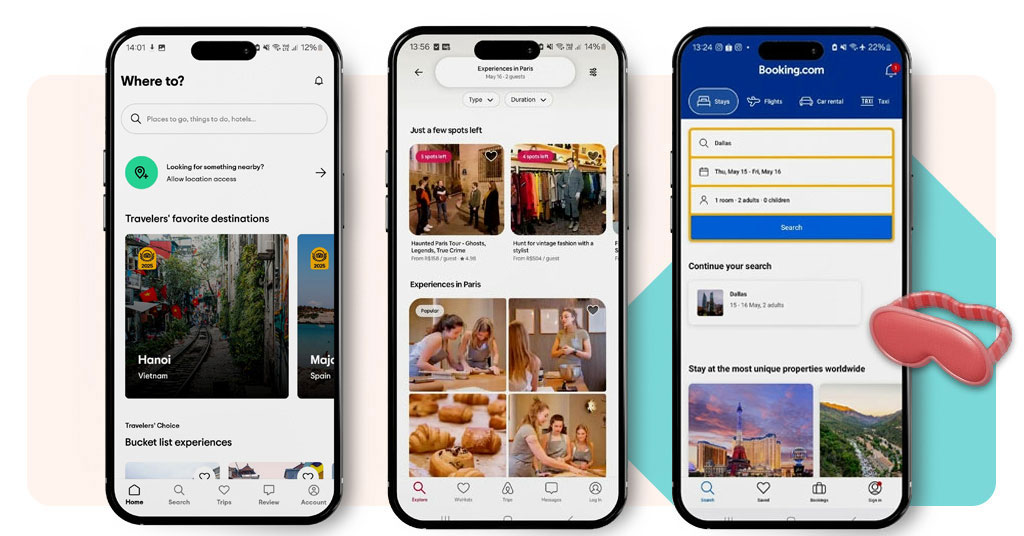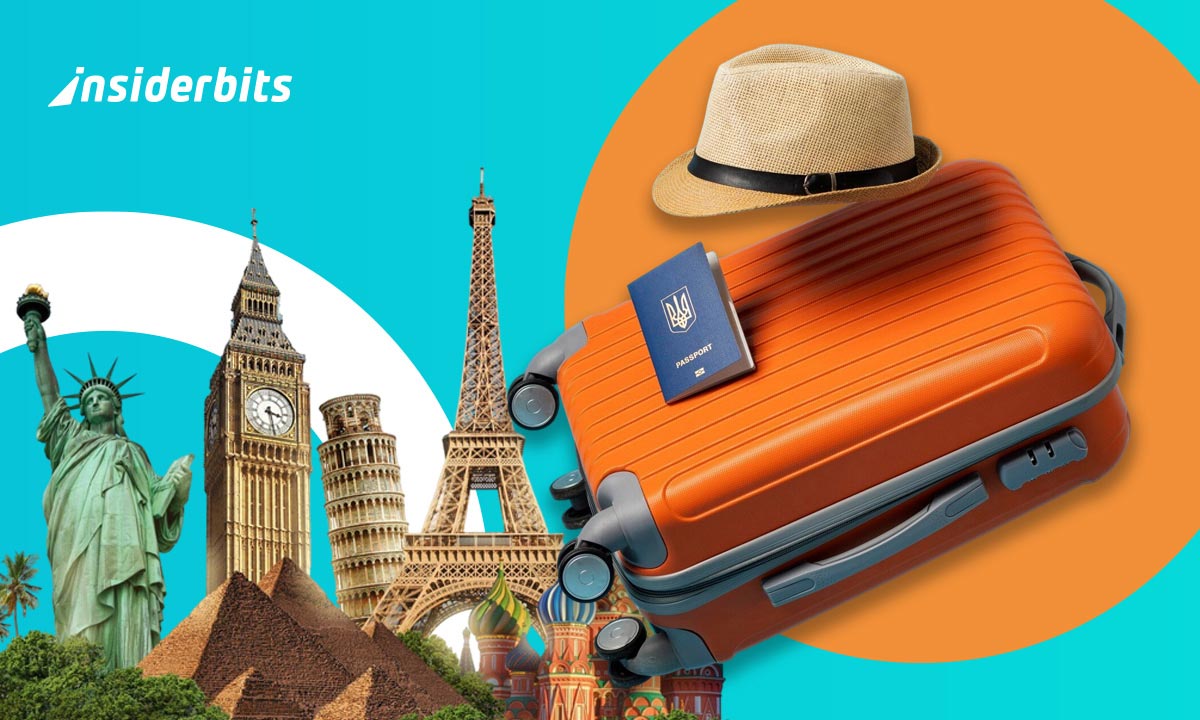In recent years, with the growing variety of digital accommodation reservation, choosing between Airbnb (iOS/Android) and hotels has become more complex, with each offering unique benefits shaped by shifting travel behaviors and tech-driven convenience. While hotels continue to promise consistency and service, Airbnb appeals to those seeking home immersion and flexibility.
The keyword Airbnb vs Hotels goes beyond preference, it now reflects how people define comfort and value when they travel. What used to be a price battle in the past is currently more about personal priorities.
4.8/5
Airbnb vs Hotels in 2025: Which One Offers More Value?
Travelers in 2025 assess value through a broader lens that goes far beyond nightly rates, weighing what each stay contributes to the overall travel experience.
Nowadays, travelers are prioritizing comfort and convenience, making these just as important as price.
Firstly, Airbnbs often appeal to guests seeking more autonomy, with features like full kitchens, goods, living areas, and immersive local settings that create a sense of home.
Hotels, however, continue to offer a compelling alternative through built-in services such as daily housekeeping, breakfast, luggage storage, and around-the-clock support.
These elements bring a level of structure and predictability that simplifies short stays and reduces the burden of trip planning, particularly for business travelers or those with tight schedules.
While Airbnb may offer more space and authenticity, hotels provide convenience in moments when routine and assistance matter most. The balance depends on what the traveler needs to feel supported and relaxed during their stay.
As a result, many travelers no longer choose one platform exclusively. Instead, they evaluate the nature of each trip and switch between Airbnb and hotels accordingly.

Real Differences in Safety, Flexibility and Price
When it comes to safety, hotels still hold an advantage with standardized procedures, making them a reliable choice for solo travelers or late arrivals.
The controlled environment offers peace of mind that appeals to many seeking predictability.
At the same time, Airbnb has improved its safety measures with verified hosts and guest reviews, but security still varies between properties.
Some listings offer strong protections, while others depend heavily on the host’s location.
In terms of flexibility, Airbnb allows self-check-in, cooking facilities, and a wider range of layouts, which makes it ideal for longer stays or travelers seeking a more personalized experience.
On the other hand, hotels most of the time don’t offer any cooking tools for travelers, which makes them spend more money in restaurants.
Airbnb may be more affordable for groups or extended trips, while hotels often can be a good option for solo travelers.
Ultimately, using comparison apps is key to determining which truly offers the better value.
How to Choose Based on Your Travel Style
Your travel habits should guide your decision, as both Airbnb and hotels cater to different needs.
If you prefer daily housekeeping and on-site dining and breakfast, hotels offer structure and ease, ideal for short stays or travelers who value convenience.
For digital nomads, long-term travelers, or those wanting a deeper connection to their destination, Airbnb provides a more personalized experience.
Many travelers now mix both: booking hotels in busy cities for access and security, then switching to Airbnbs in quieter areas for space and comfort.
Keep in mind that the right choice depends on the purpose and rhythm of your trip.
Booking Tips to Save More on Either Option
Firstly, Booking (iOS/Android) earlier still makes a difference, especially for Airbnb, where popular listings fill up months in advance and hosts adjust prices dynamically based on demand.
4.9/5
As highlighted above, always use comparison tools like Tripadvisor (iOS/Android) to view side-by-side reviews, fees, and amenities before committing to a stay, and always check cancellation policies closely.
4.6/5
Many hotels offer discounts through loyalty programs or bundled airfare packages, while Airbnb may allow you to negotiate directly with the host, especially for longer stays.
Finally, staying flexible with your travel dates or using incognito mode when searching can also reveal lower rates across both platforms.
Airbnb vs Hotels in 2025: How to Choose the Best Stay – Conclusion
In the Airbnb vs Hotels debate, there’s no universal winner, only what fits best for each moment. Both offer meaningful advantages that appeal to different travel rhythms and expectations.
While hotels provide structure and professional service, Airbnbs give travelers space, autonomy, and a stronger connection to place. The smartest choice comes from matching the stay to the experience you’re seeking.
Using both strategically may be the most rewarding approach, one that blends convenience with authenticity, comfort with discovery.
Verwandt: Apps zur Reisesicherheit: Sicher bleiben mit Crowdsourced Alerts im Jahr 2025
Hat Ihnen dieser Artikel gefallen? Speichern Sie den Insiderbits-Blog unter Ihren Favoriten, um die neuesten Tools, kreativen technischen Tipps und bahnbrechenden Entwicklungen in der Bildbearbeitung zu erhalten!




